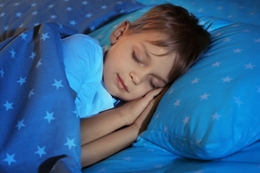27 July 2018
 Children, like adults, need quality sleep in order to function well. But, when a child sleepwalks, parents often worry about how this might impact their child’s development and behaviour.
Children, like adults, need quality sleep in order to function well. But, when a child sleepwalks, parents often worry about how this might impact their child’s development and behaviour.
In a new study by the University of South Australia, researchers have explored the prevalence of sleepwalking in school children and its relationship with broader sleep and daytime difficulties.
Lead researcher, Dr Helen Stallman says sleepwalking is a common behaviour among children.
“Children lead energetic lives; and like all of us, at the end of the day they need a good night’s sleep to set them up well for tomorrow,” Dr Stallman says.
“When parents notice their child sleepwalking, it’s natural for them to worry. Although it usually has no negative consequences, it can result in injuries including cuts and abrasions.”
The study assessed 1814 Australia school children aged between 5 to 10 years, with parents reporting 10.5 per cent of children had sleepwalked during the previous week.
Most parents reported their child sleepwalked only once during the previous week, but some children had sleepwalked more frequently.
The first of its kind in Australia, the study found that sleepwalking is often associated with a range of sleep problems including issues with bedtime routines, bedtime anxiety, sleep terrors, restless sleep, sleep talking, teeth grinding, and sleep apnea.
Dr Stallman says that emotional and behavioural issues are often the result of sleep problems.
“Problems with behaviour or emotions clearly have the potential to affect learning and how children get along with others,” Dr Stallman says.
“However, unlike other sleep conditions, we found that sleepwalking itself does not cause daytime emotional and behavioural problems.
“Parents can should ensure a safe sleeping environment if their child sleepwalks. Of course, if parents are concerned about their child’s sleep then we’d recommend they see a sleep specialist.”
…………………………………………………………………………………………………………………………
Contact for interview: Dr Helen Stallman office +61 8 8302 4360 | email Helen.Stallman@unisa.edu.au
Media contact: Annabel Mansfield +61 8 8302 0351 | mobile: 0417 717 504 | email: Annabel.Mansfield@unisa.edu.au


